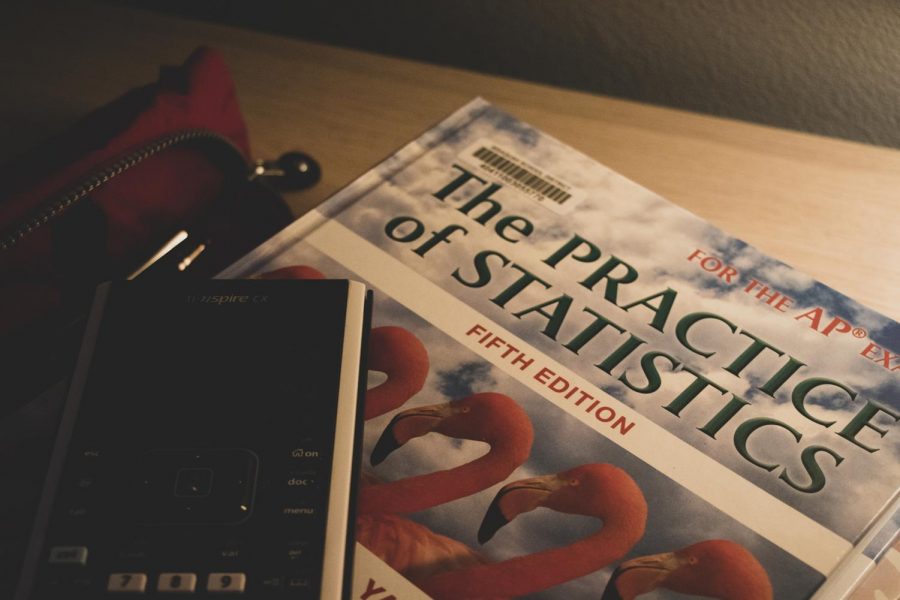The Pros and Cons of AP Classes
TRANSITIONING INTO THE SCHOOL YEAR Many students are starting to see schoolwork pile up as AP classes start picking up the pace. Many schools are starting to weigh the pros and cons of preserving AP classes as an option for students to take.
October 30, 2019
With the school year now in full swing, many students at Issaquah High and throughout the country are getting accustomed to their new classes. But with the recent debates about how useful and worthwhile Advanced Placement or AP classes really are, many schools have begun to discourage students from overexerting themselves as a result of taking too many AP classes.
Although some view AP classes as unnecessarily challenging and time consuming, many students and parents still believe that there are many upsides to taking such rigorous classes. For instance, Issaquah High School junior Matthew Kim, who is taking six AP classes this year believes that “AP classes are a worthy investment for people willing to put in the time and effort.” Junior Aiden Lee who is also taking five AP classes, also said that AP classes are “beneficial for people looking to get college credit and challenge themselves in high school.” Besides offering an opportunity to earn college credit in high school, junior Dani Madan also says that “AP classes can be fun if you are interested in the topic.” Although most AP classes move at a quicker and more rapid pace than honors or normal classes do, students who are genuinely interested in the topic and seek to learn more have a perfect chance to further their education. AP classes can create a difficult yet fun environment that can provide students with resources to help them get a head start in college and deepen their understanding of a topic so long as they put in the time and effort.
However, it is important to remember that there are also equally as many drawbacks as advantages to taking these accelerated classes. Mynorthwest reports that it is important for both students and their teachers to “Take into account some of the other things that are going on. You might have a kid who’s sharp and gifted, but his home situation might be messed up, or you know her folks are poor and she doesn’t get to eat, and so her performance suffers.” Many district administrators like Seattle Public Schools Superintendent Denise Juneau agree; she argues that while “I don’t want to take the opportunity away — I want to keep the opportunity there, but I want it to be for everyone.” Due to their large time and resource commitment, AP classes can become an impossible class for many students who do not possess the proper tools or assistance at home to succeed in.
AP classes are also much more difficult than their counterparts are, and they can cause a large amount of mental stress on students who may also balance extracurricular activities like jobs, sports, clubs and other equally important hobbies or responsibilities. In a study done by the Los Angeles Times at Burroughs High School in California, “578 students enrolled in AP classes, with 1,275 attempting an AP exam, a drop from 605 enrolled students and 1,285 tests taken the previous school year.” With more and more students forgoing taking these rigorous classes instead of being able to maintain time for other pastimes, it is no wonder why the amount of AP students and test takers have begun to drop. Furthermore, as reported by USA Today, “Changes coming Aug. 1 include a controversial exam registration deadline in November instead of March, and new $40 penalties for each late registrant or canceled exam. Some skeptics say the new deadline could actually deter skittish students – especially those already overwhelmed in the fall by college applications or by the rigor of AP material.”
However this drop in AP class attendance does not signify AP classes are starting to become less popular, but rather more selective. Both senior Kyle Yamabe believes that “not everyone should take an AP class” and sophomore Claire Su agrees that with Yamabe, stating that “it really depends on everybody’s interests and their schedules.” The Washington Post stated that for some students and their parents, like Cindy Hargroves, recalled that her daughter was not an honors or AP student. “I don’t believe every child needs to take AP classes or be pressured to take them,” she said. Lissa Costa’s daughter, who had so much trouble with AP in ninth grade, did well in the AP courses she took in 11th and 12th grade.” AP classes are no doubt very challenging due to their broader coverage of information and accelerated pace of teaching. Thus, for many students AP classes may not be the wisest choice if they already must balance a packed schedule.
Nevertheless, for students taking an AP course for the first time, there are still many silver linings to offset the difficulty of the material. The college credit is extremely useful for many students, and for many classes, the AP test offers a substantial grade bump at the end of the course. While difficult, Lee advises that the key to succeeding is “to never procrastinate and always study ahead of time.”
TRANSITIONING INTO THE SCHOOL YEAR Many students are starting to see schoolwork pile up as AP classes start picking up the pace. Many schools are starting to weigh the pros and cons of preserving AP classes as an option for students to take.



